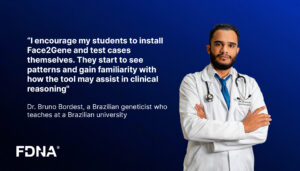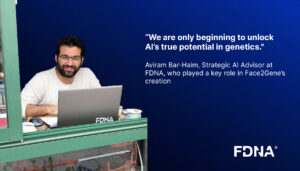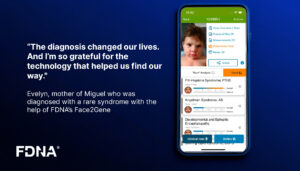January 17, 2019
“Making a diagnosis is a complicated process. Doctors go through medical school, medical training, and years of practice to develop their cognitive abilities — not to store millions of reference images in their heads. AI in its most influential state should be harnessed as a tool to enhance human abilities, not try to replace them. Integrating AI technologies into the clinical workflow can aid in reaching an earlier diagnosis, thus eliminating the need for multiple lengthy tests”
The Forbes article explores the transformative impact of artificial intelligence (AI) on healthcare, with a focus on FDNA’s innovative Face2Gene technology. Face2Gene utilizes AI algorithms to analyze facial features, assisting in the diagnosis of rare genetic disorders. This technology boosts diagnostic accuracy and efficiency, enabling healthcare providers to identify genetic conditions that might be missed by traditional methods. The article highlights the potential of AI to personalize patient care, streamline clinical workflows, and improve overall healthcare outcomes.


